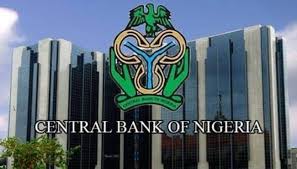Businesses across Nigeria say high interest rates have become the most severe challenge affecting their operations, surpassing long-standing problems like insecurity and poor electricity supply.
This was revealed in the Central Bank of Nigeria’s (CBN) Business Expectations Survey for June 2025. The survey, which covered 1,900 firms from the agriculture, services, and industrial sectors, showed that high interest rates scored 75.6 on the constraint index, slightly ahead of insecurity (75.2) and insufficient power supply (74.3).
The apex bank said in the report, “Respondents identified High interest rate (75.6), Insecurity (75.2), and Insufficient power supply (74.3) as the top three business constraints in June 2025, highlighting concerns around factors that directly impact operational stability and profitability.”
This result points to growing frustration among business operators who are struggling to cope with expensive loans and limited access to credit as the CBN keeps interest rates high to fight inflation and defend the naira.
Although insecurity and power supply have remained major structural issues for many years, the recent spike in borrowing costs seems to have worsened the situation, especially for small and medium-sized businesses that rely on bank loans to run their operations.
Other major problems highlighted in the survey include high bank charges (73.2), multiple taxes (68.9), an unfavourable economic climate (68.7), and unclear economic laws (67.4). Political instability (62.5) and infrastructure gaps (62.4) ranked lower, indicating that economic and financial constraints currently weigh heavier on businesses than political risks.
Despite the tough conditions, the report shows that many businesses are still optimistic about the future. The Business Confidence Index (BCI) stood at 20.7 in June, but businesses expect it to rise steadily to 41.3 over the next six months, driven by hopes of improved economic conditions.
However, the confidence level differs across regions. The South-East recorded the lowest BCI at 4.4, which the CBN linked to high sensitivity to interest rates. In contrast, the North-East posted the highest optimism at 37.1.
“This optimism was highest in the North-East region at 37.1 index points and lowest in the South-East region at 4.4 index points. The low level of optimism in the South-East could be attributed mainly to the sentiments surrounding high interest rates,” the report said.
Meanwhile, firms surveyed said they expect the naira to appreciate in the coming months. However, they also believe borrowing costs may rise further if the tight monetary policy continues.
In line with these expectations, the CBN’s Monetary Policy Committee (MPC), at its 301st meeting held from July 21 to 22, retained the Monetary Policy Rate (MPR) at 27.5 per cent for the third consecutive time in 2025. The committee also maintained other key policy parameters: the Cash Reserve Ratio (CRR) at 50 per cent for deposit money banks and 16 per cent for merchant banks, and the Liquidity Ratio at 30 per cent.
CBN Governor Olayemi Cardoso, while speaking at the post-meeting press briefing, said, “The Committee decided to maintain the current policy stance and hold all policy parameters constant,” stressing that the policy will remain until inflationary pressures reduce significantly.
Cardoso noted that the decision was based on recent data showing a decline in the headline inflation rate to 22.22 per cent in June from 22.97 per cent in May — the third consecutive monthly drop. He attributed the moderation to falling energy prices and a relatively stable foreign exchange market.
However, he cautioned that month-on-month inflation increased to 1.68 per cent from 1.53 per cent, due mainly to rising prices of services and imported food, suggesting that price pressures remain a concern.
Reacting to the CBN’s decision, the Director-General of the Lagos Chamber of Commerce and Industry, Dr. Chinyere Almona, said keeping the MPR at 27.5 per cent “remains a depressing burden on businesses.”
“We therefore desire to see a reduction in the Monetary Policy Rate,” Almona said.
Similarly, former Chief Economist at Zenith Bank, Marcel Okeke, described the CBN’s tight stance as “injurious” to the economy.
“To any business that needs funding, the high interest rate is injurious. As a matter of fact, many small businesses have been crowded out of the financial system. They cannot access funds,” he said.
